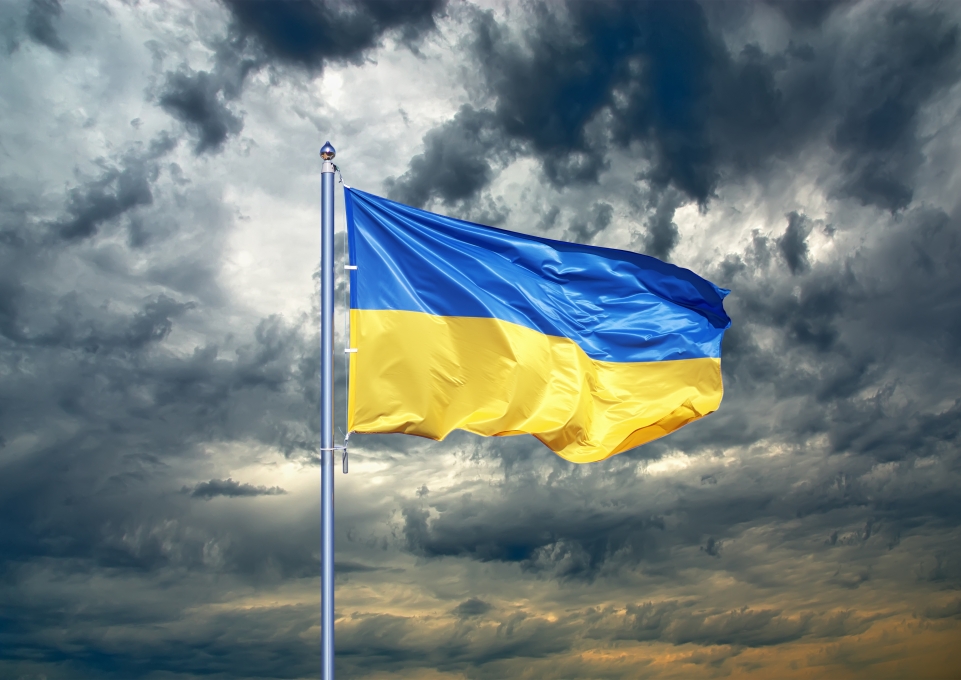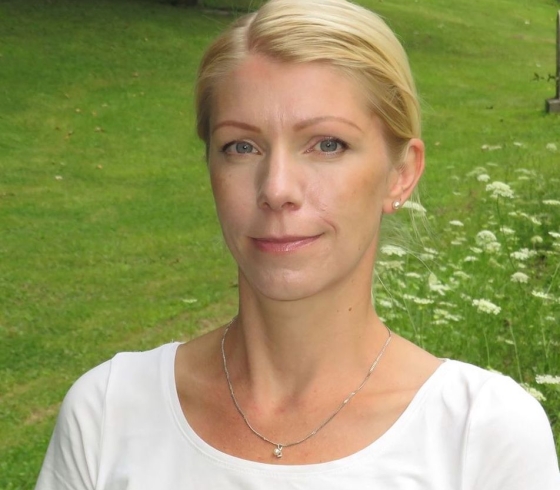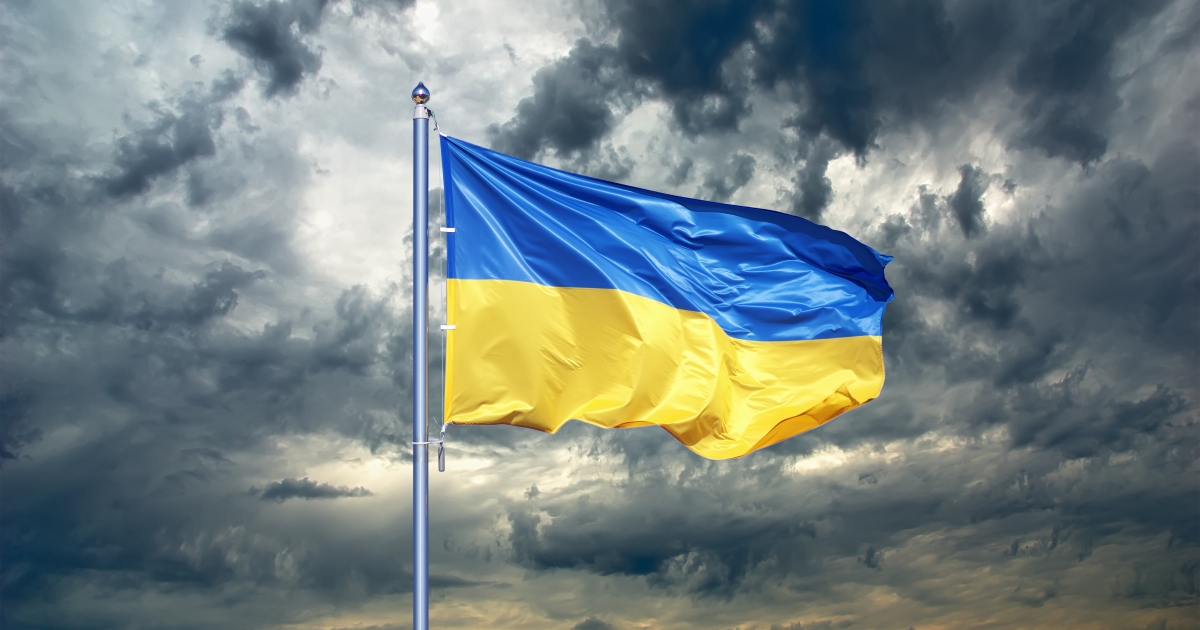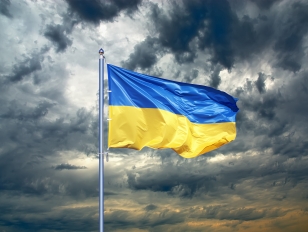
On February 24, 2022, Russian President Vladimir Putin launched a devastating attack on Ukraine, the European democracy of 44 million people. Putin was reported to want to “restore the Russian Empire” in this invasion, moving beyond the annexation of Ukraine’s Crimean Peninsula, which his forces seized in 2014.
Russian bombing and shelling have pummeled cities throughout the Ukraine, resulting in death, destruction, and an enormous number of civilians fleeing the country. As of April 19, the Office of the UN High Commissioner for Human Rights (OHCHR) recorded 2,224 civilian deaths and 2,897 injuries in the country, although officials say the actual figures are likely to be considerably higher.
The U.S. and its allies in the North Atlantic Treaty Organization (NATO) have condemned Russia’s invasion, and President Joe Biden has called the war “unjustified.” Multiple countries, including the U.S., have imposed a wide range of unprecedented and severe economic sanctions on Russia and pledged military support to Ukraine.We talked with Sara Norrevik, lecturer of political science and public administration, about the ongoing conflict and its many ramifications.

Name: Sara Norrevik
Title: Buffalo State College Lecturer of Political Science and Public Administration.
Originally from Stockholm, Sweden, Norrevik joined the faculty part time in 2017 and completed her doctorate in political science from the University at Buffalo in 2020. Her research interests include foreign policies of the European Union and American foreign policy, and she has taught Russian politics. Before her career in academics, Norrevik served as a political adviser in Sweden’s Ministry of Defense.
From your perspective, how long has Ukraine been vulnerable?
I think since 2008 with Russia’s aggression in Georgia. We saw what Putin was willing to do with former Soviet states. Then, in 2014, Russia invaded Crimea. A few years after Putin came to power in 2000, it became obvious he had this ambition to establish a Russian empire. He wants to restore Russia’s influence, not just in the former Soviet Union but throughout Europe. In 2007 Putin gave a speech, touching on the humiliation of Russia when the Soviet Union fell.
What role should the North Atlantic Treaty Organization (NATO) play in this war?
NATO definitely has an important role. It should keep the door open to Ukraine and other countries to join and not be threatened by Russia’s claim about its security concerns. Eastern Europe is not a threat to Russia. Ukraine was occupied by both the Nazi regime and the Soviet Union. Most Ukrainians have grandparents who lived through these horrible times—the genocides in which all kinds of minorities suffered. You can easily understand why Ukraine doesn’t want this to happen again. It wants to be a free and democratic country.
Was Ukraine ill prepared for this war?
Ukraine has been fighting a war against Russian-backed separatists, irregular troops, and even regular Russian troops in Eastern Ukraine since 2014. The country has been ready for war on the psychological level, which is seen in the unmatched fighting spirit of Ukrainians. Do they lack equipment? Absolutely. Ukraine’s government repeatedly asks Western countries to support them with heavy weapons. It’s difficult to match the size of Russia’s military. And that’s why so many former Soviet republics that endured occupation and repression for decades decided to join NATO. They knew that the threat of Russian aggression had not disappeared.
Will increasing economic sanctions against Russia will be effective?
These sanctions are important. In the long term, it will decrease Russia’s ability to finance the war. But realistically, even a full Western ban on Russian gas may not be sufficient to deter Putin from continued aggression. There is still room to impose secondary sanctions that target parties that do business with sanctioned entities. Secondary sanctions have been used against Iran and North Korea, for example. Yet, regardless of the effectiveness of sanctions, they may be imposed for “sanitary” reasons, to avoid association with Putin’s regime and its war crimes.
How will Europe and the United States manage the resulting economic effects of the war, including the flow of Ukrainian refugees?
There has been a strong showing of support for Ukraine in both Europe and the U.S. Ukraine has been on a path to integration with the European Union since 2004, with possible EU membership on the horizon. The important EU-Ukraine Association Agreement took effect in 2017, allowing visa-free travel for Ukrainians to the EU, which has further strengthened the ties. Most people see the Ukrainian fight as a fight for the values that are at the core of the European Union, against the oppression of an authoritarian occupier.
Let’s remember that the EU’s most important achievement in the last 30 years is the integration of 10 Eastern member states in the early 2000s. Their progress has been astounding when compared to a country like Belarus, which chose another path. And that’s why it’s so important for Europe to support Ukraine now, including welcoming Ukrainian refugees.
Do you think this conflict could escalate into a nuclear war?
Historically speaking, nuclear weapons have proved to be a strong deterrent against a general war. Even Putin understands it would be suicidal to start a nuclear war. Yet nuclear weapons play an important part of Russian posturing in international politics. When the Kremlin says that its nuclear forces are on high alert, it doesn’t mean that Russia intends to go nuclear in Ukraine.
What’s worrisome is that Putin and his generals have shown a high tolerance for reckless behavior among their forces, not just in Ukraine but in military exercises in its neighborhood. In the worst case, such behavior may accidentally lead to an escalation of war. Also, any gains Putin makes in Ukraine may embolden him to test NATO’s protection of its new members, which increases the risk of nuclear war. So, the probability of nuclear war is heightened, but it’s still an unlikely scenario.



